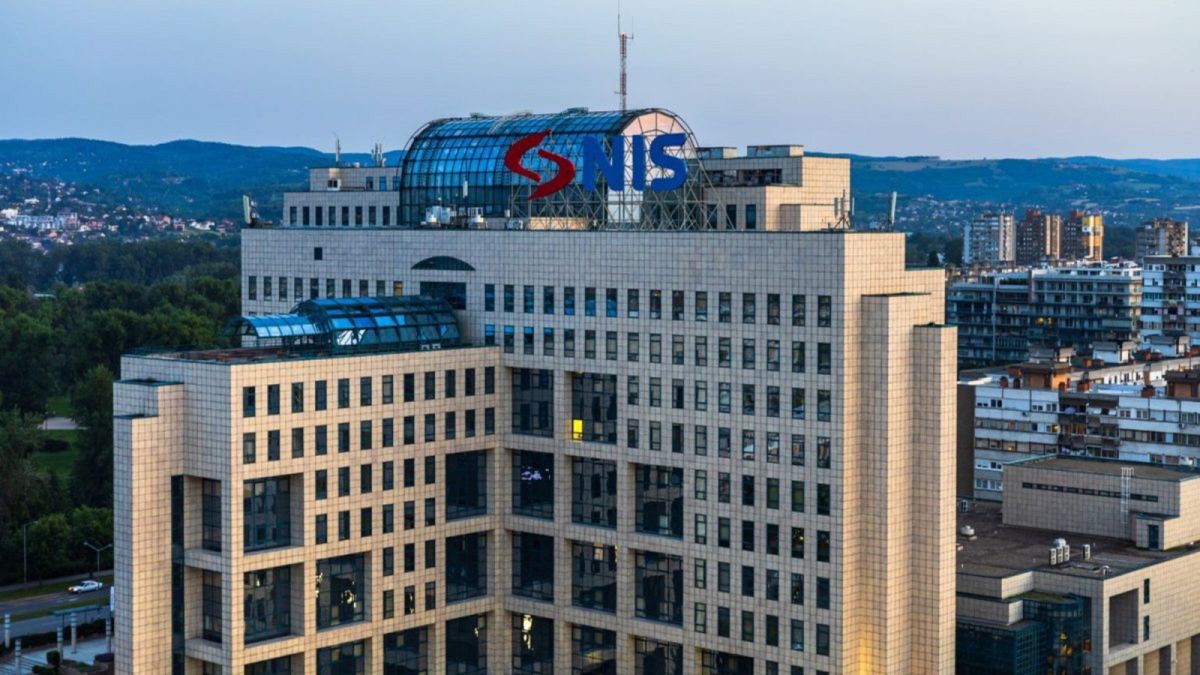The United States has sanctioned Serbia’s main oil supplier, which is majority-owned by Russia, the company confirmed on Thursday.
The sanctions against the Serbian Oil Industry (NIS), which employs 5,000 people, came into effect at 6am on Thursday.
U.S. authorities have imposed sanctions on the oil giant, which operates a refinery and 330 gas stations in Serbia, saying it is controlled by Moscow.
The move came as part of a crackdown by Western powers on Moscow’s energy sector following the full-scale invasion of Ukraine in February 2022.
NIS’s largest shareholder is Russia’s Gazprom Neft, which controls 45%, and after the swap transaction, Gazprom Capital-affiliated JSC Intelligence controls about 11%. The State of Serbia owns 30%, and the remaining 13-15% is held by small investors.
Majority ownership by Russia can only be resolved through acquisition or nationalization. There is no money for the former, but Serbian President Aleksandar Vučić has no intention of taking the latter option.
“Nationalization may be the only way to escape sanctions, but that’s the last thing I want to do,” Vučić said on Thursday.
Vučić said the Russian owners had “established a foothold” in the market and had no intention of leaving the market voluntarily. They are also politically motivated to remain in areas they consider to be within their interests.
The sanctions, announced with a 45-day notice period, have been postponed six times at Belgrade’s request, but now even Serbia’s president does not want a further reprieve from Washington.
What are the direct impacts?
If the sanctions are imposed, deliveries through the Croatian-owned pipeline JANAF will be immediately stopped by legal force. The pipeline supplies crude oil to Serbia’s only refinery in Pancevo, but the oil comes from Iraq and Gulf states, not Russia.
JANAF was granted delivery authorization, which expired on Wednesday. It mainly succeeded in meeting the needs of Serbia on its own.
In 2023-2024, a total of 6.2 million barrels of crude oil was transported from Rijeka port to Pancevo near Belgrade.
Losing a customer like NIS would impose serious sanctions on Croatia, with repercussions for JANAF’s largest shareholders, including the State Asset Management and Pension Fund, oil company INA, Croatian State Electricity Company, and the government itself, which owns 15% of its shares.
Motorists in Serbia will be immediately affected by the sanctions.
From 6am on Thursday, card payment options at petrol stations of the NIS chain will be discontinued. The terminal will no longer accept MasterCard or Visa cards that work with U.S. payment systems.
According to predictions, purchases at NIS gas stations will only be possible in cash.
Kirill Churuginev, the company’s chief executive officer, said that if banks stopped cooperating with NIS, “personal accounts of employees and consumers will not be affected.”
No immediate fuel shortages are expected. However, if reserves run out, not only will there be long lines at gas stations, but fuel prices will inevitably rise.
Does the country have gasoline reserves?
Queues at gas stations in Serbia have happened before.
In March 2022, cars lined up at stations after the Serbian government froze fuel prices, and rumors spread quickly on social media that the amount of fuel allowed per refueling would be limited, a measure that had been taken several times before.
Srbihagas director Dušan Bayatović reassured citizens on state television that Serbia’s fuel stocks were “enough for six to eight months” and that there was “no fear of price shocks or fuel shortages.”
In another broadcast by the same media, Bajatovic said that no one would feel the effects of the sanctions for a month or two.
However, expert Miloš Zdravković argued that the “insignificant” possessions held by Serbia “will not last long” even after the sanctions are imposed.
He believed these reserves were “enough for several months” and claimed that Serbia’s oil industry would be shut down due to “the impossibility of transporting the required amount of crude oil by barge on the Danube.”
“The company stores enough crude oil for processing and enough petroleum derivatives to meet current market demands,” NIS said in a press release, adding that the company’s filling stations are “ready to meet consumer needs,” without elaborating.
The owner of the Knez Petrol gas station chain, which gets half of its supply from NIS, said the sanctions would force station owners to increase their supply of imported fuel “beyond normal volumes”.
“We believe we have enough fuel until the end of the year, but after that the situation will probably be uncertain and tense in the long term,” said Elena Radun, co-owner of the Radun Avia gas station chain. She believes the most significant problem may be a lack of storage and port capacity.
Hungarian-owned Mitsui O.S.K. Lines is unaffected by the sanctions and operates 65 gas stations in Serbia. At the end of February, it announced its readiness to take over NIS’s role in the Serbian market.
Prior to the announcement, Hungary’s Minister of Foreign Affairs and Trade Péter Szijjártó criticized the US sanctions, saying they were a retaliatory measure by the Biden administration for the sovereignty policies of Hungary and Serbia, despite the sanctions being imposed by the new Trump administration.
Will there be layoffs?
As a result of U.S. sanctions, the National Intelligence Service will likely be forced to eventually lay off some of its staff.
“I hope the company does not lay off a large number of employees,” Vučić said.
“There is nothing left to discuss with the American side, so we will talk with the Russian side,” he added.
The company’s foreign bank accounts are expected to be frozen, raising questions about, for example, how employee salaries will be paid. According to Gazprom officials, salaries have been paid one month in advance as a preemptive measure since the sanctions were announced.
Even experts are uncertain about how this giant company will operate in the future. For example, banks are putting their operations at risk if they continue to do business with NIS.
This risk also extends to the state-run Postal Savings Bank, which may remain the oil company’s sole financial partner even after sanctions.
Some other companies continued to cooperate with Serbian Oil Company until this week, but others severed ties in January when the U.S. first announced sanctions.
NIS is the “lifeline” of Serbian economy
Ljubodrag Savic, a professor at the Faculty of Economics at the University of Belgrade, told Euronews Serbia that the sanctions would have severe consequences as they would effectively paralyze the activities of the NIS.
Savic said NIS accounts for 11.9% of the national budget and its production and operations account for 6.9% of GDP, suggesting that the large company plays a “lifeline” role in the country’s infrastructure.
He pointed out that NIS has 5,000 employees whose fate affects the lives of 20,000 family members.
NIS has already been underperforming in the first half of this year, with sales down more than a quarter compared to the same period in 2024.
The situation is further exacerbated by the fact that banks expect to repay just over 500 million euros in loans from NIS, of which 180 million euros are due this year.
According to Veloljub Dugaric, former secretary general of the Serbian Banking Association, there is always the possibility that foreign banks will immediately try to collect the debt.
Dugaric recalled that the U.S. government had no problems seizing or freezing Russian assets abroad in the past.
“They would do the same thing here without a problem,” Dugaric said.
Professor Savic warned that sanctions are easy to impose but difficult to lift, adding that Serbia is what he calls the most collateral damage in a conflict between the US and Russia.








